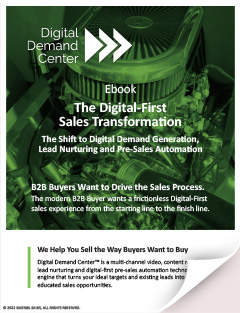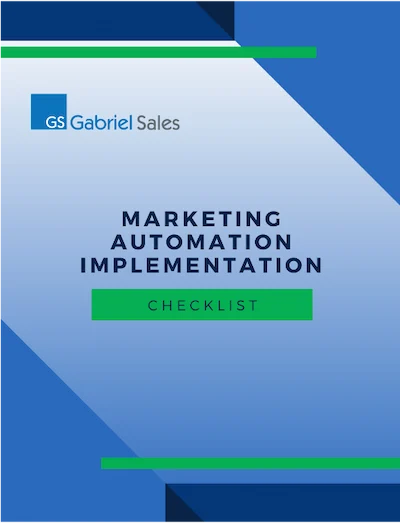 According to a 2014 Buyer’s Guide on marketing automation platforms, 26% of B2B companies are planning on integrating a marketing automation platform into their sales and marketing program in the next 12 months.
According to a 2014 Buyer’s Guide on marketing automation platforms, 26% of B2B companies are planning on integrating a marketing automation platform into their sales and marketing program in the next 12 months.
For these companies with no prior marketing automation platform experience, the evaluation process can be daunting. Each platform seems to offer something a bit different in terms of features and capabilities, which can make it hard to know which platform will be most effective for your company.
To help you get started, here are six basic questions to ask when selecting a marketing automation vendor:
- Is your digital marketing program mature enough to warrant a marketing automation platform?
While marketing automation can be a game changer for many companies, not all companies have developed their digital marketing programs to the point that an automation system is necessary.
One of the main benefits of having a marketing automation system is having the ability to efficiently track and manage the many aspects and channels now involved in digital marketing (CRMs, website/landing pages, email marketing, social media, PPC, SEO, etc.). If your B2B marketing program does not currently involve a multi-channel approach supported with content marketing, adding a marketing automation platform is not really going to help you much.
For a marketing automation platform to be most effective, it needs something to track. This means you need a solid database of prospects and quality marketing content to send to them. This way, you can see which prospects are engaging with what content/messages to help better determine how to move them through the sales pipe to close.
2. What are your integration needs?
If you’ve determined that your marketing program would benefit from an automation platform, the next step is determining what your integration needs are.
Generally, the most important integration to consider is your customer relationship management system (CRM). Without this type of integration, you will vastly limit the effectiveness of any marketing automation platform in terms of sales. Some marketing automation platforms can integrate with four or more different CRMs (e.g. Oracle CRM, Net Suite, Microsoft Dynamics, etc.) while others can only integrate with Salesforce. If you are attached to the CRM you are using currently, you should select a marketing automation vendor that will allow for easy integration.
It is also important to consider any other integrations that would be useful in your sales process. For example, the ExactTarget platform Pardot allows for integration with Outlook to allow sales reps to send and track one-off emails. Many other platforms (e.g. Act-On, Etrigue) do not allow for this type of integration, so consider whether or not this capability is critical when selecting the right tool for your business.
3. How big is your database?
Another aspect to consider when selecting a B2B automation tool is volume. There are some platforms out there that have limits on the number of contacts or prospects you can have at any given time (e.g. 3,000, 10,000). If you are a startup or a growing business, you may want to keep in mind that the number of prospects you have now is likely to grow, and you want your marketing automation platform to be able to support that growth. Conversely, if you are fairly confident that you already have most of the ‘universe’ for your given market within your database, you can opt for a platform with a smaller contact/prospect limit.
Additionally, some platforms have limits on the number of emails that can be sent at one time or sent daily. For example, Etrigue allows 1,000 people to be marketed to at one time. If your marketing requirements are greater than that, you will want to select a tool with higher volume limits for email campaigns.




